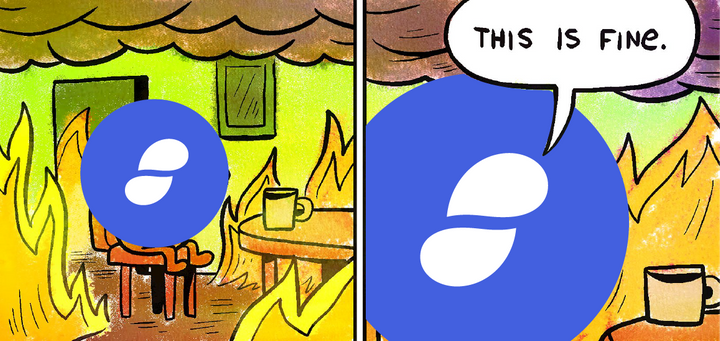As other teams pivot away from chat to focus on other parts of the user experience of Ethereum such as wallets and exchange, we thought we'd highlight why we think conversation will form the basis of a more equitable internet that is accessible, useful, and secure for all of us.
Dialogue is constitutive of human being. It is our primary means of expressing relationship - the first site of any possible transaction between you and I. Being able to express oneself without fear - to enter into transactions with whom you want according to terms you can agree on directly - is a requirement for free speech. If dialogue informs how we become human, then how freely one can speak defines the kind of humanity to which it is possible to aspire.
What we say to one another, how we find one other, and the ways in which we choose to interact cannot be controlled by intermediaries if we are to consider ourselves 'free' in any meaningful way.
Gen. Michael Hayden of the NSA put it most clearly:
We kill people based on metadata.
What you say ought to be entrusted to the people to whom you say it, and no-one else. It's as simple as that. And this goes for any speech act, whether it be discursive words, or general transactions with other kinds of value or state-changing capability.
Money has always been speech, and Bitcoin literalised that again for all of us. We can now walk anywhere in the world with twelve words located nowhere but our minds, incant them into internet-connected machines and gain direct and immediate access to exchange value. With a more generalisable language and machinery, Ethereum offers the same capabilities with regards not just to exchanging value, but to any mediation ofstate itself.
This is why we are committed to censorship resistant protocols, which are a direct reflection of our principles. Building distributed systems that really are secure is an extremely tough challenge, but open source projects like ours are incentivised to be as transparent as possible about our work as it enables the whole community committed to the mass adpoption of Ethereum to learn faster.
Whisper: The Series
Status uses a gossip protocol called Whisper, which is part of the Ethereum stack. It's what we call a peer-to-peer, multicast, end-to-end encrypted, dark protocol. All these terms - and much more - will be explained in the technical series that follows this.
Whisper is not the only way to handle secure messaging. We are not naive enough to believe it offers a final solution to the twin problems of privacy and efficiency (or even those of autonomy and convenience), but working on it has taught us a few really interesting lessons that we'd like to share for the benefit of the whole community.
Status has been pushing the boundaries of what Whisper is capable of for some time now. In this series, we'll be diving deep into what all those terms above really mean, what the weaknesses of Whisper really are, how we've improved it so far, how much work is still required, and what we think we can explore next in trying to design safer and more creative conversational spaces for everyone.








